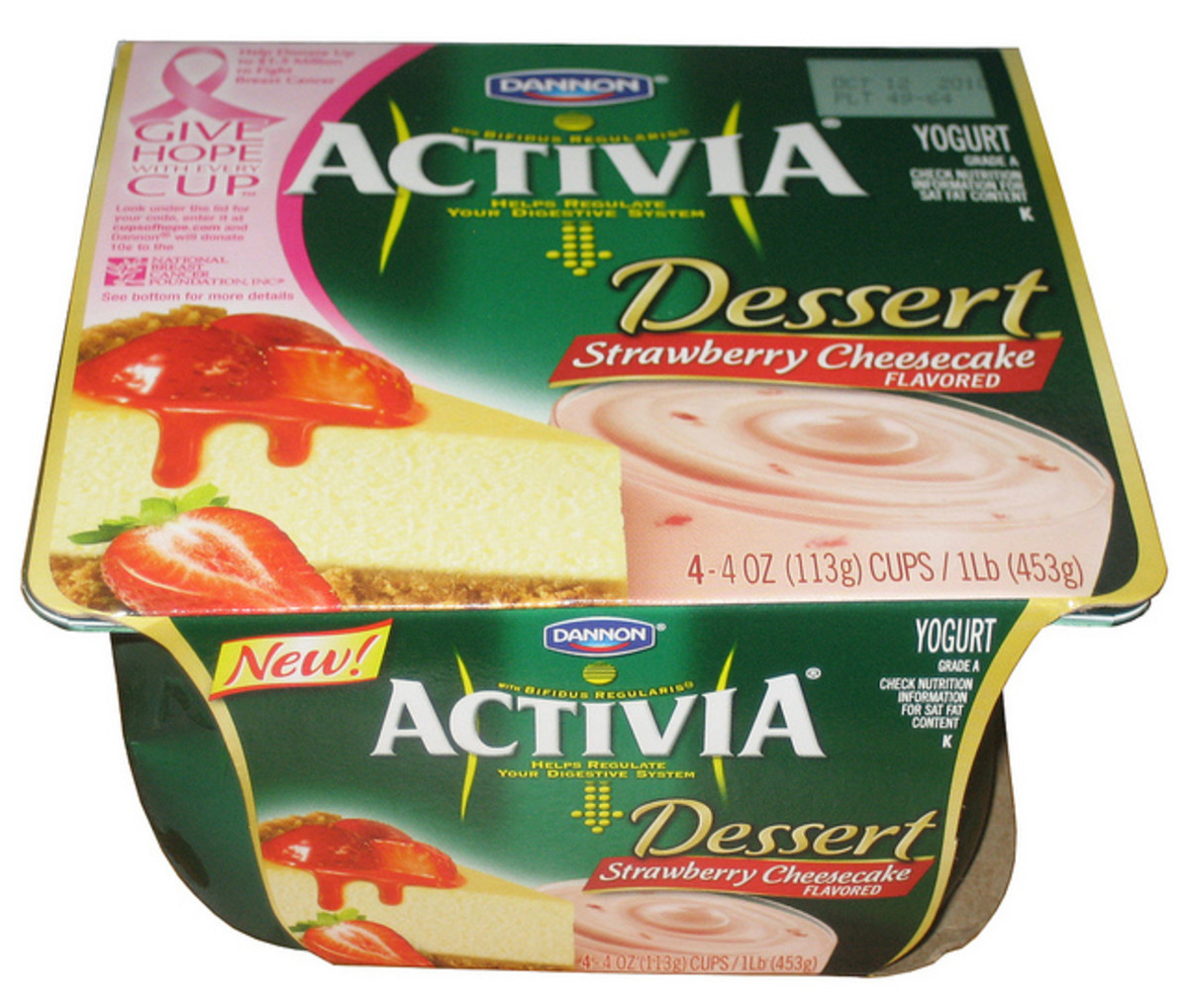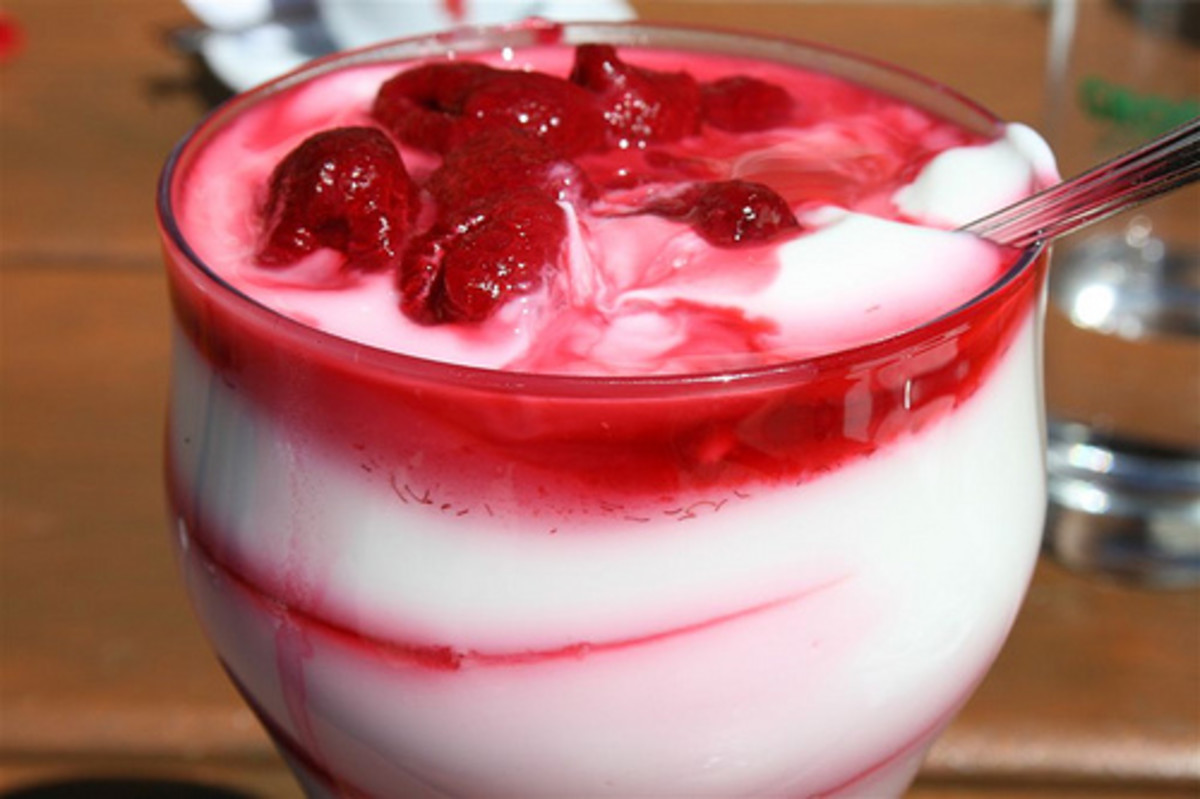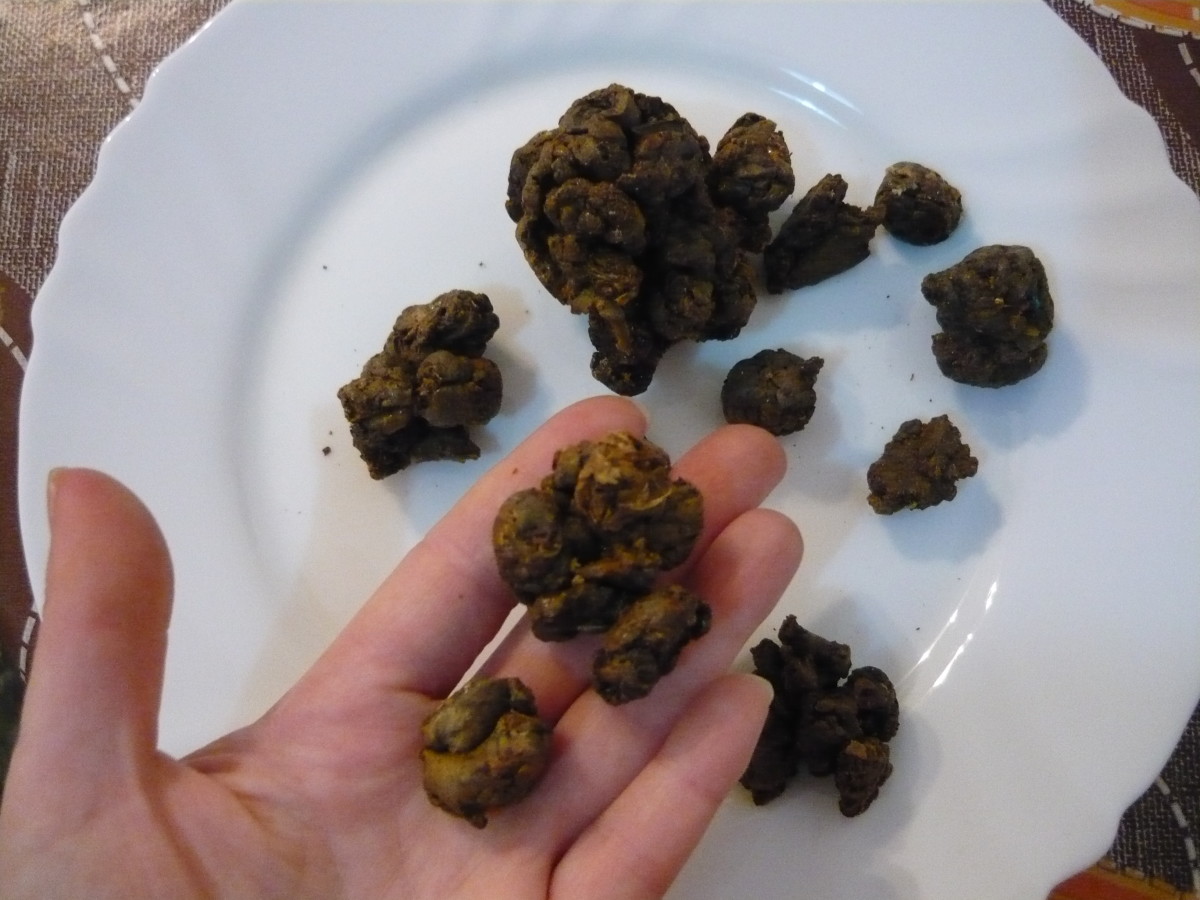- HubPages»
- Health»
- Alternative & Natural Medicine»
- Alternative & Natural Supplements
The benefits of Probiotics

Just What Is a Probiotic?
Probiotics have become all the rage in the past few years, however mounting evidence suggests that it’s more than just a passing fad and after considering the benefits of probiotics, many would agree that it may be an important cog in our quest for a healthy life, mind and body.
Probiotics are live micro-organisms(bacteria) that improve health when consumed. The FAO(Food and Agriculture Organization) of the United Nations defined “Probiotics” as:
“live micro-organisms which, when administered in adequate amounts, confer a health benefit on the host.”
Probiotics are the live bacteria that we consume in order to balance the amount of good and bad colonies of bacteria found in our intestinal tract. While it may seem odd to think that consuming bacteria can impart a health benefit to the average person, it has actually been around for centuries. Not to mention, probiotic foods are rather delicious.
Our gastrointestinal(GI) tract is teaming with beneficial bacteria and many people regularly consume probiotic foods such as yogurt or cheese. There are an estimated 100 trillion micro-organisms, consisting of about 500 different strains, that inhabit the bowel of the average healthy person. This bacteria performs a variety of functions that include:
- Food digestion
- Improvement of the immune system
- Warding off of pathogens(harmful micro-organisms)
- Assisting with nutrient absorption and generally keeping our intestines healthy.
The Most Recommended Probiotic Supplements

Why Do You Need Probiotics?
The number one reason we all need to consider taking probiotic supplements or eating probiotic foods is because of the effect consuming antibiotics have on the body. The gastrointestinal(GI) tract consists of a fine balance between “good bacteria” and “bad bacteria”. When the balance is disturbed mainly through the use of antibiotics, which destroy both kinds of bacteria, we develop a host of problems ranging from decreased immunity to yeast infections, gastrointestinal issues and diarrhoea amongst others.
What Are the Benefits of Probiotics?
Research into the benefits of probiotics is still ongoing, however probiotics generally provide the following advantages:
Chron’s Disease
Studies have shown that probiotics may prevent the relapse of Crohn’s Disease in some cases and assist with the remission of ulcerative colitis. Since these disorders are so frustrating to deal with, many are turning to probiotics and with reasonable success.
General Digestive Health
Even if you don’t have a serious intestinal problem, taking probiotics is the recommended solution to improve and maintain your general digestive health.
The health benefits of probiotics are many, but for this reason alone, it is worth it.
The fine balance of intestinal flora in our digestive tract helps to break down food and assists with nutrient absorption, but through the use of antibiotics, we disturb this balance.
According to a recent study from JAMA(The Journal of American Medical Association), about 30 percent of people who had previously taken antibiotics suffer from gastrointestinal issues and as a result doctors usually prescribe probiotics as a means to repopulate the digestive tract:
"The use of antibiotics that disturb the gastrointestinal flora is associated with clinical symptoms such as diarrhea, which occurs in as many as 30% of patients."
According to the study, probiotics is the preferred solution to these problems.
IBS(Irritable Bowel Syndrome)
Probiotics can also treat IBS(Irritable Bowel Syndrome), which is a particularly stubborn condition to treat. Symptoms include bloating, diarrhoea and abdominal pain amongst others. Among female patients, the probiotic strain identified as Bifidobacterium infantis have shown to alleviate abdominal pain and some of the other symptoms associated with IBS.
Urinary Health
In women, the urinary tract is prone to infection. While antibiotics eliminate most infections, a reasonable amount do return, about 30 to 40 percent. By taking probiotics, you can help prevent bad bacteria from entering the urinary tract.
Allergies
Studies have shown that probiotics serve to reduce our reactions to allergens. Allergens are the agents that cause allergic reactions in our bodies, mainly due to our bodies’ “misreaction” to these substances. Allergic agents are normally fluff, dust, pet hairs, pollen etc..
By maintaining the floral balance in our intestinal tract, we lessen our reactions to these substances.
Women's Health
Similar to the intestinal tract, the vagina consists of a finely balanced ecosystem. The system shifts out of balance with the use of birth control pills, spermicides and excessive douching, including a number of other factors.
Many women have had to deal with two rather uncomfortable conditions that result from this: Bacterial Vaginosis and yeast infection.
Bacterial Vaginosis is particularly damaging and needs to be treated urgently since it can result in pre-term labor and other pregnancy related problems, including inflammatory disease.
The probiotic strain identified as Lactobacillus Acidophilus can be administered orally or as vaginal deposits, to combat these issues.
As mentioned earlier, general urinary health is also one of the benefits of probiotics.
Improved Immune System
By maintaining the balance of intestinal micro-organisms, one can boost the immune system.
By eating probiotic foods and taking probiotic supplements we can ensure an active, energetic, refreshed and healthy life with a reduced risk of contracting disease.
Emotive Health
The latest studies have shown that probiotics mitigates depression and improves decision-making. In a few studies involving groups of women, researchers found that Lactobacillus rhamnosus led to decreased activity in the areas associated with pain and emotion and improved activity in decision-making areas.
Some probiotic foods such as Sauerkraut - a fermented, delicious food, rich in live cultures, have a tranquillizing effect on the user and is believed to reduce anxiety, insomnia and depression, through centuries of use.
Obesity
Researchers at Stanford University have determined that there’s a difference between the intestinal bacteria of obese people and those of normal weight. This difference certainly demonstrates the need for probiotics in order to maintain a healthy balance of intestinal flora in people suffering from obesity.
Additionally, recent research have shown that probiotics help to maintain weight loss in people who have had weight-loss surgery. In addition, Lactobacillus and Bifidobacterium supplements – two strains of probiotics – have proven to reduce weight- in some studies.
The Best Probiotic Foods
The following foods are the most useful sources of probiotics today. Including these foods in your diet, along with our list of some of the best probiotic supplements will ensure that your body is kept in excellent health.
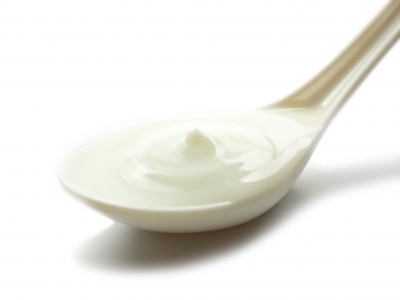
Yogurt
When you hear the word “probiotic”, chances are that yogurt is one of the first things that come to mind. That’s because yogurt is arguably the best known probiotic food. It’s no surprise really, since it’s produced by the fermentation of milk.
Yogurt that is rich in live cultures is the best. Home-made yogurt is even better. Ordinary yogurt off supermarket shelves are rarely effective as a probiotic, since many contain artificial ingredients that render them ineffective.
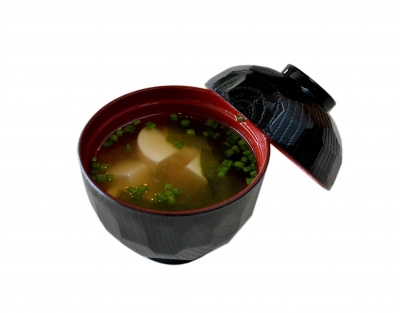
Miso
Miso is a traditional Japanese sauce that is produced by fermenting barley, soy, rice or rye with the fungus, kōjikin.
Miso is essentially a paste that is used in sauces, with meat, as a spread, to make delicious soups and a host of other dishes. Although it’s still a staple of Japanese cooking, it has recently gained steady international interest.
Mixing Miso with a soup stock and some water should provide a quick culture rich dish.
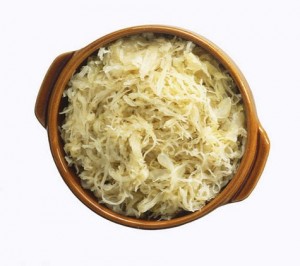
Sauerkraut
One of the oldest sources of “good bacteria”, Sauerkraut is fermented cabbage and is packed with vitamins B, C and K. It is a very good source of dietary fiber, copper and iron.
Uncooked, unpasteurized Sauerkraut also contain live Lactobacilli- a strain of beneficial bacteria. Coupled with the fiber it contains, Sauerkraut improves digestion and promotes digestive health by protecting the digestive tract from many diseases. It has been used in Europe to treat stomach ulcers for centuries and this is proven by numerous studies.
Raw, unpasteurized Sauerkraut provides the most optimal health benefit.
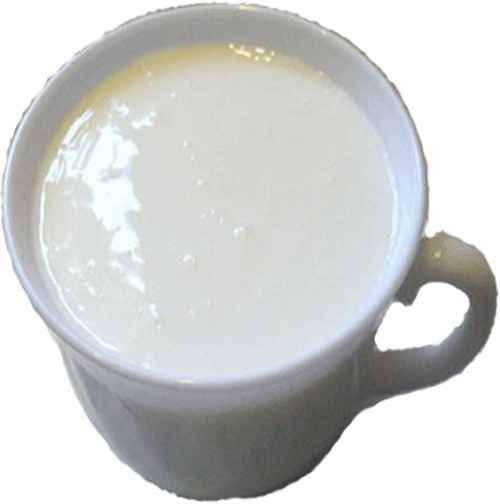
Kefir
Kefir is a diary drink made from fermenting goat, sheep or cow’s milk with Kefir grains and is similar to yogurt. Kefir is packed with minerals, vitamins and easily consumable protein. Kefir protects the intestinal tract against harmful pathogens and according to recent research is beneficial to nursing mothers and babies. Kefir can also be used to treat insomnia and depression, because of it’s tranquilizing effect.
We’ve only recently started to study Kefir even though it has been around for centuries in Northern and Eastern Europe and this wonder drink contains many benefits yet to be discovered. Kefir is available in health stores and can be made at home.

Pickles
Yes, the common pickle is a good source of beneficial bacteria. Known as gherkins in Europe, pickles are produced by immersing pickled cucumbers in an acidic solution such as vinegar.
Low in calories and moderately laced with Vitamin K, pickles are beneficial to the intestinal tract.
Sweet pickles are higher in calories, but generally produce the same benefit as sour pickles. Use pickles as a quick fix whenever you feel you need to boost your probiotic intake. Ignore pasteurized pickles(the beneficial bacteria has been killed off), since these provide no benefit at all.

Kimchi
Kimchi is a traditional fermented Korean side-dish that can be made using a variety of seasonings. Being Korea's national dish, there is a myriad of different ingredients with a main vegetable ingredient such as radish, napa cabbage, cucumber or scallion.
Over half of the recommended daily Vitamin C and Carotene is contained within a single serving of Kimchi and it was recently named by "Health" magazine in it's list of the top five "World's Healthiest Foods". It's packed with dietary fibre, contains Vitamin A, Iron, Calcium, Thiamine and is low in calories. Kimchi primarily aids digestion.
Your Opinion Matters!
Did You Find This Article Sufficiently Informative?
There are many more probiotic foods such as cheese, milk, Kombucha and others; however the foods above generally provide the most potent probiotic benefits.
Combined with probiotic supplements, you can repopulate your digestive tract and eliminate many of the causes of today’s stubborn diseases. We owe it to ourselves to keep our bodies in maximum condition for the rigours of today’s hectic life.

